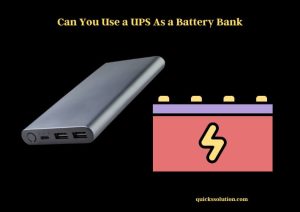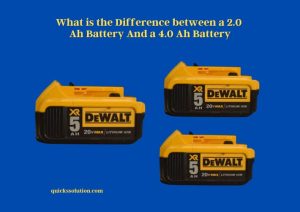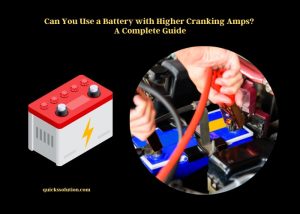Published on: July 20, 2023
Written by John Stevens / Fact-checked by Hashim Manna
Indeed, a generator needs a battery to run. The battery in this context acts as the power kickstarter, especially crucial for diesel generator sets.
The role of a battery in a generator cannot be overstated. It’s essential for the startup process, sending the initial current to the ignition system to begin the combustion process. In the absence of a battery, this entire process halts, rendering the generator ineffectual. It can’t generate the backup power that it’s intended to.
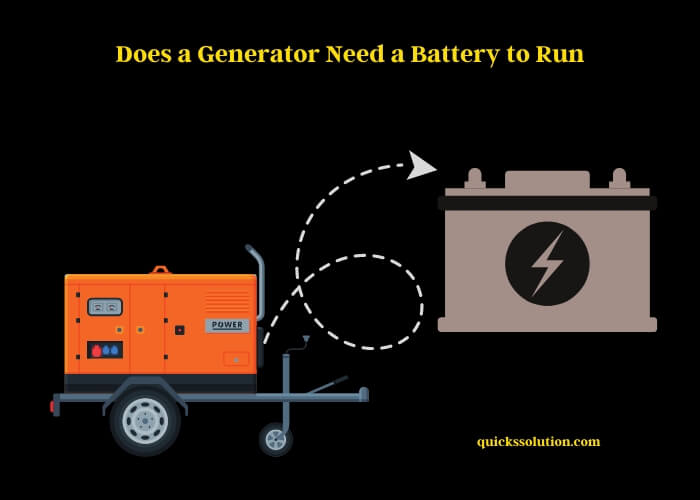
While we discuss generators that need batteries, it’s worth noting that not all generators need batteries. Pull-start generators are a prime example. These generators use a manual crank method to generate initial mechanical energy, thus bypassing the need for a battery. They are quite popular because of their relative simplicity and cost-effectiveness.
As for whether generators run on batteries, it’s a no. While the battery starts the generator, it’s the fuel, such as diesel or gasoline, that powers the generator to produce electricity. The battery doesn’t provide the power for the generator to run continuously; it only aids the ignition process.
A regular maintenance check of the generator battery is crucial. Ensuring the battery is in good condition will ensure your generator will work smoothly. It’s not just about having a battery; it’s about having a battery that is capable of doing its job.
The connection between a generator and a battery is intricate but fundamental. The battery is vital for the generator’s initial operation, but it doesn’t power the generator’s ongoing functionality. With the exception of pull-start generators, this arrangement is the standard. The battery and generator interplay ensures the smooth operation of your backup power source when you need it most.
The Role of a Battery in a Generator
Vitality of Batteries in Generators
Batteries are indispensable for the operation of most traditional generator sets. They act as the ignition initiator for diesel generators, delivering the initial electrical charge that fires up the machine. Without the presence of a battery, the generator would be unable to commence the ignition process. This, in turn, inhibits the generator from supplying electricity, thus defeating its core purpose.
Process of Battery-Initiated Ignition
The battery starts by sending an electrical charge to the ignition system of the generator. Upon receiving this charge, the ignition system triggers the fuel combustion process, which ultimately leads to power generation. It’s a precise sequence, where each component, including the battery, has a pivotal role. Any malfunction can disrupt the chain of events, leading to generator failure.
Battery-Powered Generators: An Overview
Functioning of Battery-Powered Generators
Battery-powered generators, contrary to popular belief, do not rely solely on a battery for continuous power generation. The battery is used for initiating the system, but it is the fuel, such as gasoline or diesel, that enables the generator to run and produce electricity.
Advantages and Disadvantages
Battery-powered generators offer a plethora of advantages such as ease of ignition and automatic operation. Yet, they also require regular battery checks and maintenance, which can be cumbersome for some users.
| Pros of Battery-Powered Generators | Cons of Battery-Powered Generators |
| Ease of ignition | Regular maintenance |
| Automatic operation | Potential for battery failure |
Generators without Batteries: A Viable Option?
Case of Pull-Start Generators
Pull-start generators demonstrate that a generator can operate without a battery. They use a manual crank to initiate mechanical energy and thus bypass the need for a battery. These generators are often preferred due to their simplicity and cost-effectiveness.
Suitability and Limitations
While pull-start generators are suitable for small-scale use, they might not be the best option for larger, more demanding tasks due to their limited power output. Plus, manual cranking can be physically taxing, especially in an emergency situation.
Battery Maintenance for Generators
Importance of Battery Maintenance
Proper maintenance of the generator battery can significantly enhance the performance and longevity of the generator. It’s not just about having a battery; it’s about having a battery in good working condition.
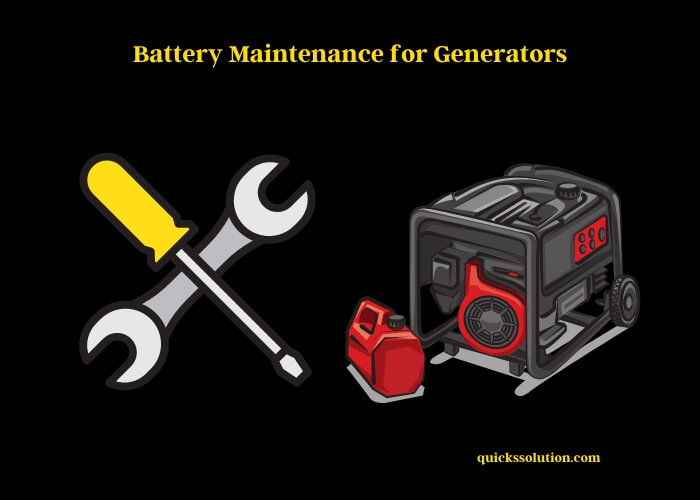
Maintenance Practices
Regular inspection and timely replacement of batteries can prevent sudden generator failures. Equally critical is to ensure that the battery is always adequately charged, as a weak or dead battery will not kickstart the generator.
Troubleshooting Battery Issues in Generators
Common Battery-Related Issues
The most common battery-related problems in generators include poor connections, inadequate charge, and expired battery life. Each of these can prevent the generator from starting up or operating optimally.
Solutions for Battery Problems
Solving these problems typically involves inspecting the connections, ensuring regular charging, and replacing the battery if it has reached its end-of-life.
Emerging Trends: Alternative Solutions to Batteries
Solar Generators
One promising trend in the generator industry is the increased adoption of solar generators. These units harness the sun’s energy, completely bypassing the need for a battery or fuel.
Fuel Cells
Another burgeoning trend is the use of fuel cell generators. These devices generate electricity through a chemical reaction, often involving hydrogen and oxygen, without needing a traditional battery.
Deciding on the Right Generator: Battery or No Battery
Consideration Factors
Choosing the right generator depends on various factors, including power requirements, maintenance capabilities, budget, and personal preference. The decision-making process should also consider the pros and cons of battery-powered generators and those that don’t require batteries.
Making an Informed Choice
Knowing your power needs and understanding the functioning of different types of generators can help you make an informed choice. Keep in mind that regardless of whether you choose a generator with a battery or without, maintenance is key to ensure long-term reliability.
Frequently Asked Questions (FAQs)
Does a Portable Generator Have a Battery?
Yes, many portable generators do have a battery. The battery is typically used to initiate the ignition process, but the generator’s continued operation relies on fuel such as gasoline or diesel.
Is a Generator Battery Necessary for a Diesel Engine?
Yes, a generator battery is necessary for a diesel engine. Regular maintenance and timely diesel battery replacement are crucial for ensuring reliable engine start-up and maintaining the overall functioning of the electrical system. Without a properly functioning battery, the diesel engine may experience starting issues and poor performance.
Does a Generator Have a Battery?
Indeed, most types of generators, especially diesel sets, have a battery. The battery serves to kickstart the ignition process. However, it is not responsible for powering the generator continuously.
What Is the Best Battery for a Standby Generator?
The best battery for a standby generator is typically a 12-volt, deep-cycle battery. The specific model may vary depending on the generator’s specifications, so it’s recommended to check the manufacturer’s guidelines.
Are Backup Generator Batteries Powered by Batteries?
Backup generators do have batteries, but they are not powered by them. The battery initiates the ignition, but the generator runs on fuel, such as diesel or natural gas.
Why Does a Home Generator Need a Battery?
A home generator needs a battery to initiate the ignition process. The battery sends an initial charge to the ignition system, which then starts the combustion process, leading to power generation.
Read more:

